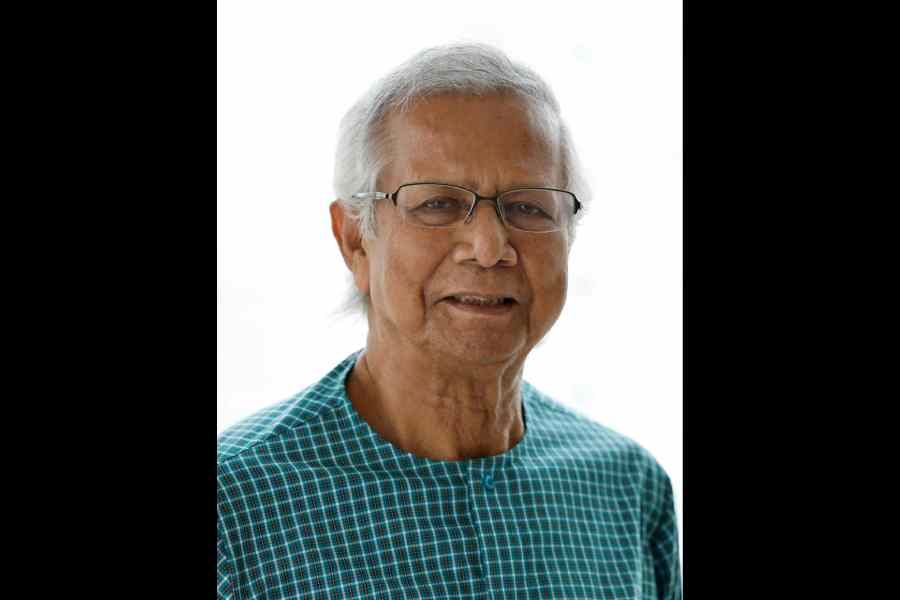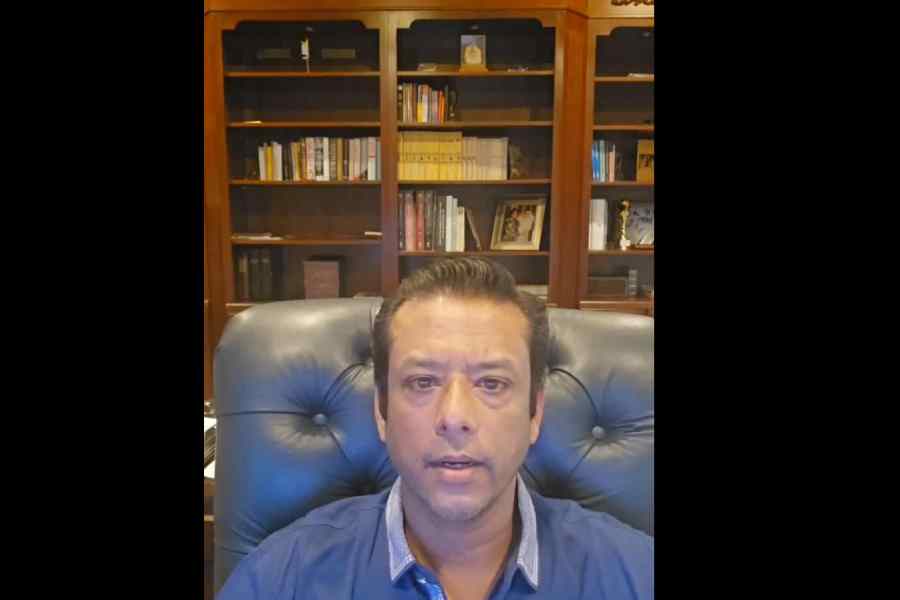DATELINE DHAKA: Anarchic violence raged across Bangladesh on Tuesday with the revenge killings of Awami League leaders and police, attacks on minorities and the torching of hotels and clubs, as many supporters of the old regime went into hiding or attempted to flee the country.
Amid the bloodbath — a veteran journalist put the death toll since Monday at 1,000 — the country began baby steps towards forming an interim government
with President Mohammed Shahabuddin dissolving the parliament.
A senior officer in the press wing of the President’s office told Bangladeshi media that a meeting on Tuesday evening had decided that Muhammad Yunus — Nobel Peace Prize winner and founder of the Grameen Bank — would head the interim government.
A 13-member team from the Anti-Discrimination Student Movement, which led the agitation that ousted Prime Minister Sheikh Hasina, had met Shahabuddin and the three service chiefs along with two academics to work out the contours of the new administration.
The press officer said a decision on the composition of the new administration, which faces the humongous tasks of restoring order to a country in upheaval and reviving its economy, would be taken after consulting the political parties.
The announcement — around five-and-a-half hours after the meeting began — indicated that reaching a consensus on the composition of the interim government would be the biggest challenge in post-Hasina Bangladesh.
A source mentioned another sticking point: Yunus apparently wants three to six years at the helm of the interim government while the BNP, the main Opposition party, is unwilling to wait beyond three to four months for an election.
“When the students who sacrificed so much are requesting me to step in at this difficult juncture, how can I refuse?” Yunus told the Bangladeshi media, indicating his willingness to steer the nation through this difficult phase.
Several people from Bangladesh told The Telegraph they were living in fear as the law enforcers had almost vanished and the army returned to the barracks, giving vandals the chance to run amok.
“It’s free for all now.... At least 100 policemen have been killed in less than 24 hours, and their arms stolen. Revenge killing is going on everywhere,” the chief editor of a popular news channel told this correspondent.
“I can’t give you an exact count, but the death toll in the last 36 hours would not be less than 1,000.”
Multiple sources in other parts of Bangladesh such as Chandpur, Meherpur, Comilla, Jessore, Faridpur and Satkhira echoed the veteran journalist and spoke of how the disappearance of the law enforcers had made them, particularly the minorities, vulnerable.
As reports cited the torching of hotels, popular clubs and the Indira Gandhi Cultural Centre in Dhaka and attacks on the offices and homes of Awami League leaders, some media outlets highlighted how the student leaders were trying to restore order and appealing to people to protect the minorities.
A few student leaders appeared on news channels and blamed the “ousted fascists and their collaborators” for the violence and vandalism.
“We are working on a plan for a new beginning and are confident that the interim government will address all the issues and stabilise the country,” said Asad Ronny, one of the coordinators of the Anti-Discrimination Student Movement.

Bangladesh's Nobel Peace Prize winner Muhammad Yunus. (Reuters)
While Opposition parties such as the BNP, Jamaat-e-Islami and the Jatiya Party, hard-line religious organisations and civil society members have come together to give shape to a new government under the patronage of the armed forces, the student leaders have emerged as the fulcrum of the efforts.
The difficulties of charting a new course for the country became apparent amid reports that the student leaders were unhappy with the BNP’s demand to appoint the party’s acting chairperson Tareq Rahman, exiled in London since 2008, the head of the interim government.
“We fought the fascist regime of Hasina, we lost our brothers and friends.... The interim government will have to be formed along the outline provided by us. We won’t let the political parties, be it the BNP or the Jatiya Party, dictate terms,” Ronny told this newspaper in the afternoon.
A source in the student camp went to the extent of accusing the BNP of stalling the deliberations on the formation of the interim government. The role played by the army chief, General Waqar-uz-Zaman, also came under fire from some student leaders.
“He involved the BNP and extremist forces like the Jamaat and Hefazat-e-Islam in the process, which we didn’t approve of.... Nor do we want an interim government that would be under army supervision,” a student source said.
If the interim government contained BNP elements, a fresh movement would start, he said. “The BNP and the Awami League are two sides of the same coin. We want a fresh start with people without baggage,” the source said.
He added that the prolonged meeting at the President’s residence, Bangabhaban, underlined the difficulties in reaching a consensus on the new government.
Some likely members of the new government, whose names have been floating around in Dhaka’s political circles, have had connections with the BNP and the Jamaat. “Keeping them out of any formation would be difficult,” a student leader said.
Hasina uncertainty
With the UK government yet to decide on asylum, Hasina’s next destination remains up in the air. “The file is still with the (UK) home department, but her application is unlikely to be accepted,” a source said, adding that Hasina had begun exploring the possibility of asylum in a Gulf country.
Reports suggested a scramble among Awami League leaders to leave the country to escape revenge killing. Two of Hasina’s trusted aides — former foreign minister Hasan Mahmud and junior ICT minister Zunaid Ahmed Palak — were detained at the Shahjalal International Airport while trying to leave the country.
“They will kill us if we stay on…. I too am trying to leave the country,” a former minister told this correspondent in a shaky voice from Dhaka.










